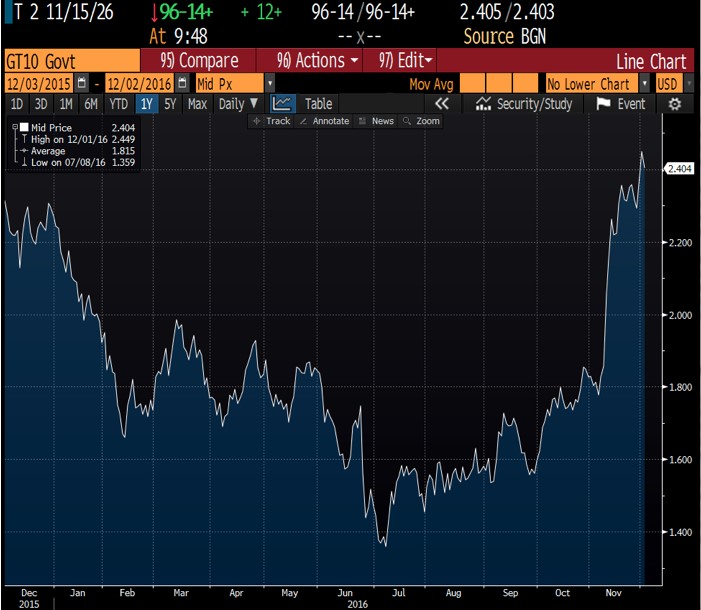Ben Carson will head Trump’s HUD: What could it mean?
In a move that's drawn a mix of criticism and praise, President-elect Donald Trump has selected retired neurosurgeon Ben Carson as his secretary of the Department of Housing and Urban Development (HUD).
It's an appropriate time for us to discuss HUD, its role in housing and what influence Carson may have on the agency.
First, who is Ben Carson?
Even before he became a presidential contender, Carson, 65, was renown as a brilliant neurosurgeon who successfully separated two conjoined twins. In the 1980s, he became the youngest chief of pediatric surgery in the country at the time.
He grew up in inner city Detroit, was raised by a single mother and, by his own admission, had a violent streak. During his run for president, Carson often discussed how his faith in God melted his rough exterior after he unsuccessfully tried stabbing someone, and how he climbed out of poverty and into success.
He also managed to stir controversy, and his campaign crumbled under the weight of internal strife and strategy gaffes.
Carson endorsed Trump soon after dropping out the race early this year, despite the verbal shots the two fired at each other on the campaign trail.
It's no secret that Carson has no professional experience in housing or running a governmental bureau as large as HUD. The agency has a $48 billion budget and about 9,000 employees.
But whether you feel he's qualified or not, should the Senate confirm Carson for the post, the political newcomer will become the public face of a bureau that has a direct hand in shaping policies that affect millions of Americans with dreams of homeownership.
That begs the question: Just how much influence will Carson wield over HUD, and just how far will his reach extend?
So, what exactly is HUD?
HUD as we know it today owes its origin to the 1965 Housing and Urban Development Act, which increased federal funding for housing programs, provided rental help to the elderly and disabled and spurred construction of more low-income housing. Three years later, the Civil Rights Act barred housing discrimination based on race, religion, national origin and sex, and gave HUD enforcement powers.
Today, the agency gives oversight to affordable housing programs, regulates fair housing legislation and creates policies to address homelessness. With a mission to make homeownership accessible to all people, HUD also provides federal aid to distressed neighborhoods and communities, and insures home loans for low-income families struggling financially.
How does HUD affect FHA, VA and Ginnie Mae?
Think of HUD as the parent and the engines of housing under its purview as the offspring. While each institution functions differently, they all point back to and ultimately support the greater organization. Let me explain:
FHA: The Federal Housing Administration is a branch of HUD that insures mortgages for single-family homebuyers. While HUD does guarantee some loans, its primary focus is on multifamily units, not individual homes. Still, prospective buyers can purchase HUD-owned homes with FHA-insured loans.
VA: The U.S. Department of Veterans Affairs guarantees loans for eligible military personnel. Since 2008, HUD and the VA have co-sponsored a program dubbed HUD-VASH (VA Supportive Housing) that provides housing vouchers for homeless veterans and their families. Borrowers may also buy HUD homes with VA loans.
Ginnie Mae: The Government National Mortgage Association (commonly called Ginnie Mae) is a corporation that operates within HUD. It funds the government loan market by ensuring that investors receive timely payment of principal and interest on federally-insured or guaranteed loans, such as those from the FHA or VA. Ginnie Mae mortgage backed securities (MBS) influences business at Movement specifically because it drives how we price loans to borrowers and the assets we sell to investors.
The takeaway
At the helm of HUD, Carson will be able to influence these entities in some way or another. His action or inaction will trickle down to the mortgage market and set the stage for how many Americans access housing opportunities.
Just like a Trump presidency creates a degree of uncertainty for housing, so does Carson's nomination as HUD secretary. Key to his success will be the rapport he establishes with the agency's professional staff and how he responds to several HUD policies and initiatives already in place.
One thing we can probably bet on is that Carson's starlit status and close relationship with Trump will bring much-needed attention to the housing market.
As for global markets…
After weeks of speculation over how he would stabilize the politically wracked eurozone, European Central Bank President Mario Draghi this week announced that the bank will begin tamping down its monetary stimulus but extend its bond purchases to the end of next year.
Rattled by the news, the embattled euro rose sharply only to later fall by more than 1 percent on Thursday.
The U.S. financial markets have been relatively calm this week, even as stocks hit a new all-time high again Thursday. The yield on the 10-Year Treasury has finally seemed to settle into a trading range between 2.35 and 2.5 percent.
Keep your eyes open next week for movement on interest rates when the Federal Reserve convenes for its end-of-year meeting Dec. 13-14. All indications point to a likely rate hike of 25 basis points.



